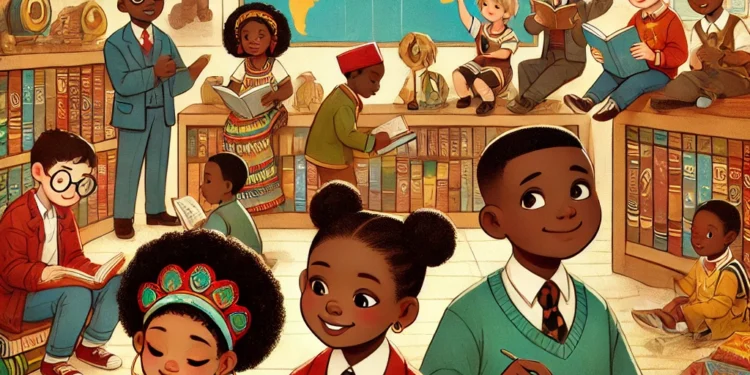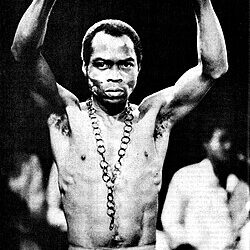African history is a rich and multifaceted subject, covering ancient civilizations like Egypt, Axum, and Carthage, as well as powerful empires such as Ghana, Mali, Songhai, and Great Zimbabwe. Afrocentrism, which emphasizes Africa’s central role in history, challenges Eurocentric perspectives and promotes a more inclusive view of global history. To help children understand this history, parents and educators can take these five steps:
1. Expand Your Child’s Library
Incorporate books by Black authors to expose children to diverse African perspectives and stories that reflect the continent’s history and culture.
2. Embrace Inclusive Narratives
Select books with diverse characters, languages, and traditions to teach children respect for differences and foster empathy.
3. Open Dialogue about Race
Answer children’s questions about race with simple, honest explanations to help them understand its importance and significance in our world.
4. Celebrate Contemporary Stories
Alongside historical narratives, include books about present-day African children and their experiences to help children understand the relevance of history today.
5. Seek Expert Guidance
Consult librarians, booksellers, and cultural experts to curate a thoughtful and accurate collection of African history books tailored to your child’s age and interests.
Through these steps, parents and educators can provide children with a deeper understanding of Africa’s rich history and contributions, fostering respect and appreciation for the continent’s diverse cultures.




















































































 EduTimes Africa, a product of Education Times Africa, is a magazine publication that aims to lend its support to close the yawning gap in Africa's educational development.
EduTimes Africa, a product of Education Times Africa, is a magazine publication that aims to lend its support to close the yawning gap in Africa's educational development.